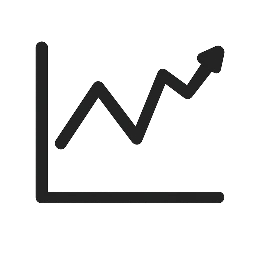In a significant move against the backdrop of ongoing geopolitical tensions, the European Union has unveiled a fresh set of economic penalties specifically targeting Russian steel imports. This decision underscores the EU’s commitment to leveraging economic measures in response to international conflicts and their broader implications. These tariffs are expected to reverberate across global markets, further complicating the intricate web of international trade and diplomacy.
The Rationale Behind the New Tariffs
The imposition of new tariffs on Russian steel is not merely an economic maneuver but also a strategic response to the geopolitical climate. The EU’s decision is rooted in its ongoing efforts to apply pressure on Russia amidst escalating conflicts that have far-reaching global consequences. By targeting a key sector of the Russian economy, the EU aims to weaken Russia’s financial stability while simultaneously signaling its disapproval of Russia’s actions on the international stage.
Implications for the Global Steel Market
The new tariffs are poised to create ripples across the global steel market. For European industries dependent on Russian steel, these tariffs could mean higher costs and potential supply chain disruptions. Businesses may need to seek alternative sources, potentially leading to increased competition and fluctuating prices in the steel industry worldwide. Furthermore, this move might prompt Russia to seek new markets or strengthen trade ties with other nations less aligned with EU policies.
Strategic Responses and Economic Adjustments
As the EU rolls out these economic penalties, both European companies and Russian exporters will need to adapt swiftly. European manufacturers that rely heavily on steel imports from Russia might explore alternative suppliers, including domestic sources or imports from other regions. This shift could also inspire innovations within the EU’s steel production sector as businesses strive for self-sufficiency amidst rising costs.
For Russia, the challenge lies in mitigating the economic impact and maintaining its foothold in the steel market. Russia may strengthen its trade relations with other countries, particularly those willing to overlook the geopolitical implications. Additionally, Russian steel producers might offer competitive pricing or improved terms to retain their market share globally.
The Broader Geopolitical Impact
Beyond the immediate economic ramifications, the new tariffs symbolize a broader geopolitical stance by the EU. This move illustrates the EU’s resolve to take tangible action against perceived aggressions and violations of international norms. It sends a message to the global community about the importance of aligning economic policies with ethical and strategic considerations.
Moreover, it highlights the interconnectedness of global economies where actions in one part of the world can significantly influence markets and policies elsewhere. As countries respond to these changes, we can expect shifts in alliances and trade partnerships, further redefining the international landscape.
Conclusion: Navigating Future Uncertainties
The EU’s imposition of new tariffs on Russian steel is a pivotal development in the realm of international trade and diplomacy. While the immediate economic impacts are evident, the long-term geopolitical consequences remain to be seen. Businesses across Europe and Russia must navigate these turbulent waters, adjusting strategies to cope with new realities.
The global community will be watching closely as this situation unfolds, assessing how such economic measures influence broader geopolitical dynamics. Amidst these changes, platforms like Banjir69 and Banjir69 login will continue to play crucial roles, providing stakeholders with insights and tools to stay informed and responsive in a rapidly evolving economic environment.
While uncertainties remain, what is clear is that the EU’s latest move marks a significant chapter in the ongoing saga of international relations, one where economic policies increasingly reflect the complexities of a globalized world.

Leave a Reply